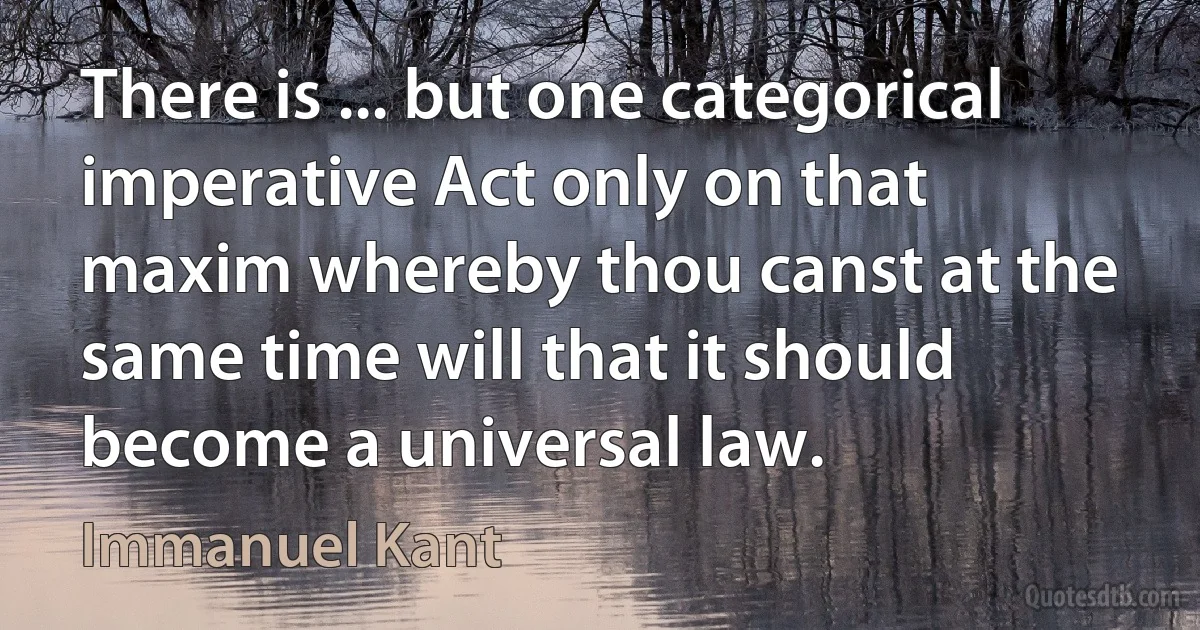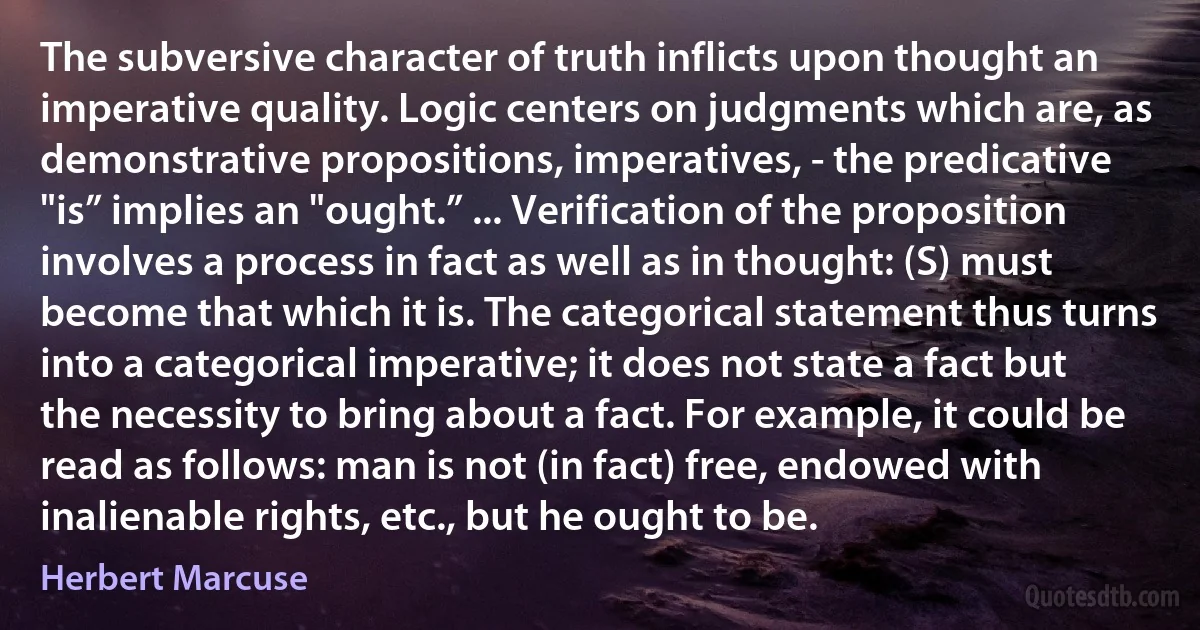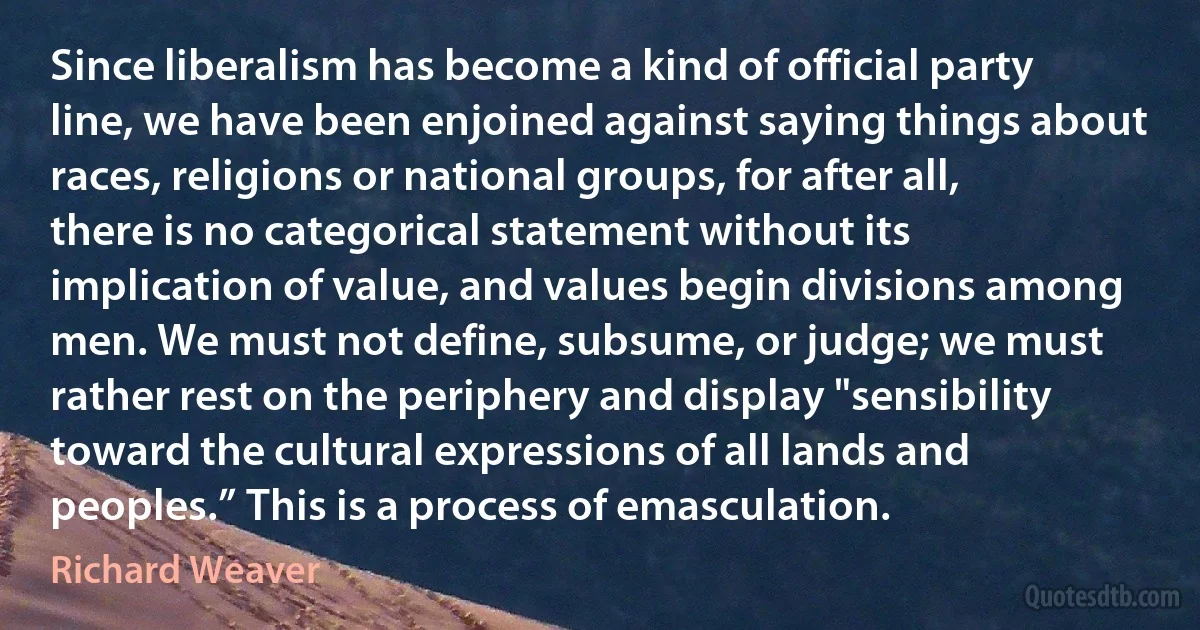Categorical Quotes
Generations of Rationalists and freethinkers have held that Jesus Christ corresponds to no historical character: There never was a Jesus of Nazareth. We might call this categorical denial "Jesus atheism.” What I am describing is something different, a "Jesus agnosticism.” There may have been a Jesus on earth in the past, but the state of the evidence is so ambiguous that we can never be sure what this figure was like or, indeed, whether there was such a person.

Robert M. Price
It is precisely now and only now, when in the starving regions people are eating human flesh, and hundreds if not thousands of corpses are littering the roads, that we can (and therefore must) carry out the confiscation of church valuables... I come to the categorical conclusion that precisely at this moment we must give battle to the Black Hundred clergy in the most decisive and merciless manner and crush its resistance with such brutality that it will not forget it for decades to come... The greater the number of representatives of the reactionary clergy and reactionary bourgeoisie we succeed in executing for this reason, the better.

Vladimir Lenin
I will try to explain what I mean by metamorphosis. For me no object can be tied down to any sort of reality. A stone may be part of a wall, a piece of sculpture, a lethal weapon, a pebble on a beach or anything else you like.... when you ask me whether a particular in one of my paintings depicts a woman's head, a fish, a vase, a bird, or all four at once, I can't give you a categorical answer, for this 'metamorphosic' confusion is fundamental to the poetry.

Georges Braque
The watchword is only one, categorical and challenging for everyone. It already flies across and lights the hearts from the Alps to the Indian Ocean: Winning! And we will win, in order to finally give a long period of peace with justice to Italy, to Europe, to the world. **From the declaration of war's announce, 10 June 1940.

Benito Mussolini
The Apollonian and Dionysian, two great western principles, govern sexual personae in life and art. My theory is this: Dionysus is identification, Apollo objectification. Dionysus is the empathic, the sympathetic, emotion transporting us into other people, other palaces, other times. Apollo is the hard, cold separation of western personality and categorical thought. Dionysus is energy, ecstasy, hysteria, promiscuity, emotionalism -- heedless indiscriminateness of idea or practice. Apollo is obsessiveness, voyeurism, idolatry, fascism -- frigidity and aggression of the eye, petrification of objects. ... The quarrel between Apollo and Dionysus is the quarrel between the higher cortex and the older limbic and reptilian brains.

Camille Paglia
The criticism of religion ends with the doctrine that man is the supreme being for man, hence the categorical imperative to overthrow all those conditions in which man is degraded, enslaved, neglected, contemptible being-conditions which can hardly be better described than in the exclamation of a Frenchman on the occasion of a proposed tax upon dogs: 'Wretched dogs! They want to treat you like men!'

Karl Marx
Greatness loves itself, and all healthy instincts decline to flagellate themselves daily with the whip of altruism. What is great must will to do more than its mere duty; it must give, make others happy, and, be it at the cost of itself, its own wellbeing, its own money or life, it must will to pour forth its blessing over others, to the extent even of self-sacrifice-but not, as Christianity demands, from unegoistic motives; the impulse must come from a sense of pleasure, from overflowing energy, from need of bloodletting, so as to unburden the full heart. All acts then derived from conscience and duty, or done with a wry countenance out of obedience to the Categorical Imperative, seem to the great man, from his point of view, through this very fact contemptible, even as he has an unsurmountable prejudice against men and nations who are always prating of those words, conscience and duty.

Oscar Levy
Education tends to be diagrammatic and categorical, opening up no sluices in the human imagination on the wonder of the beauty of our unique estate in the cosmos. Little wonder that it becomes so easy for our young to regard human hurt casually or to be uninspired by the magic of sensitivity.

Norman Cousins
I come to the categorical conclusion that precisely at this moment we must give battle to the Black Hundred clergy in the most decisive and merciless manner and crush its resistance with
such brutality that it will not forget it for decades to come. The greater the number of representatives of the reactionary clergy and reactionary bourgeoisie we succeed in executing for
this reason, the better.

Vladimir Lenin
No, I don't think it's correct to define my writing as fables. There are themes, yes, but I'm not trying to offer some categorical cure-it-all to the problematic situation of Man. I'm neither theologian nor a politician. My concern in my first novel, The Zoo, was loss of inner life. After long years of writer's block, the novel just exploded out of me. Thirty days. All too quickly to really do it justice. With my second novel, The Nihilesthete, I was taken by the spiritual diminishment and the all-pervasive powerlessness that I felt was taking over our culture which in turn prevented and inverted my lead character's full expression. Such is the motive-force behind almost banal, cerebralized cruelties he harbours upon his arch-enemy, the artist, Brodski.

Richard Kalich
The measures adopted to restore public order are: First of all, the elimination of the so-called subversive elements. ... They were elements of disorder and subversion. On the morrow of each conflict I gave the categorical order to confiscate the largest possible number of weapons of every sort and kind. This confiscation, which continues with the utmost energy, has given satisfactory results.

Benito Mussolini
[V]oluntary exchange among individuals held morally responsible under the rule of law creates both prosperity and an unparalleled diversity of human choices. Such a model also has been a precondition of individuation and freedom. By contrast, regimes of central planning create poverty and occasion ineluctable developments toward totalitarianism and the worst abuses of power. Dynamic free-market societies, grounded in rights-based individualism, have altered the entire human conception of liberty and of dignity for formerly marginalized groups. The entire "socialist experiment," by contrast, ended in stasis; ethnic hatreds; the absence of even the minimal preconditions of economic, social, and political renewal; and categorical contempt for both individuation and minority rights. Our children do not know this true comparison.

Alan Charles Kors
I nonetheless reiterate my commitment, as a member of the majority bloc in the Senate, to exert efforts to ensure the timely passage of the GAB. I likewise pledge to play an active role in initiatives to put in place strong and categorical safeguards in the GAB to guarantee that it complies with the decision of the Supreme Court (i.e. Belgica v. Ochoa and Araullo v. Aquino) and that it will not be used as a tool for partisan political interests.

Francis Escudero
Both Plato and Aristotle approved of abortion, the former in the interests of wise population policy, the latter chiefly on the ground that it was an element of the family's proper freedom in the state. Hippocrates' words on the subject are, in the original Greek, somewhat less blunt and categorical than modern takers of the Hippocratic Oath have sometimes suggested. All Hippocrates says is: "I will not give to a woman a pessary to produce abortion.” There were other means of abortion known to the Greeks, none of which Hippocrates abjures.

Hippocrates



